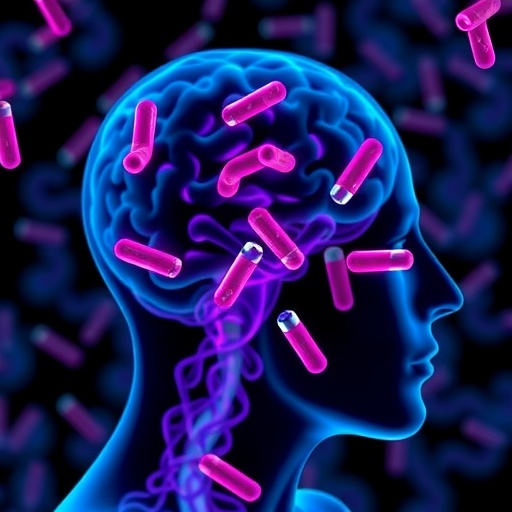In a groundbreaking stride toward mental health prevention, recent research suggests that doxycycline, a widely prescribed antibiotic, may play a pivotal role in reducing the risk of developing schizophrenia among adolescents receiving mental health care. This discovery emerges from an extensive observational study, illuminating a potential new avenue in preemptive psychiatric medicine by repurposing an existing drug conventionally used for bacterial infections and acne.
Schizophrenia, a complex and debilitating psychiatric disorder, typically manifests in early adulthood with hallmark symptoms such as hallucinations, delusions, and cognitive impairments. Despite decades of research, effective preventative strategies remain elusive, particularly for individuals showing early signs of mental health difficulties during adolescence. This new study shifts the paradigm by focusing on antibiotic treatments linked to inflammatory processes potentially influencing brain development during critical periods.
The collaborative research effort, spearheaded by the University of Edinburgh in conjunction with Finnish and Irish academic institutions, analyzed comprehensive healthcare registry data from over 56,000 adolescents engaged with mental health services and prescribed antibiotics. The observational analysis utilized state-of-the-art statistical modelling to adjust for confounding factors and isolate the impact of doxycycline treatment compared to other antibiotics commonly administered for similar indications.
Intriguingly, adolescents treated with doxycycline exhibited a 30 to 35 percent reduction in subsequent schizophrenia diagnoses as they transitioned into adulthood. This significant association suggests that doxycycline’s pharmacological effects extend beyond its antimicrobial properties, potentially modulating neuroinflammatory pathways implicated in schizophrenia’s pathogenesis. Such findings open a promising window into how early pharmacological intervention may alter disease trajectory.
The underlying mechanisms posited by the researchers involve doxycycline’s capacity to mitigate inflammation within the central nervous system and influence synaptic pruning—a critical neurodevelopmental process whereby redundant neural connections are eliminated to refine brain circuits. Aberrations in synaptic pruning, particularly excessive loss of synapses, have been implicated in the onset of schizophrenia, setting a plausible biological rationale for doxycycline’s protective effect observed in this cohort.
Furthermore, the investigators meticulously ruled out alternative explanations for the observed benefit, such as confounding by indication—specifically, whether the outcomes were merely attributable to acne treatment rather than infection management. Advanced statistical controls and subgroup analyses reinforced the robustness of the association, diminishing the likelihood of hidden biases skewing results.
Professor Ian Kelleher, leading child and adolescent psychiatry expert at the University of Edinburgh, emphasized the potential clinical impact of these findings: many individuals who eventually develop schizophrenia have prior engagement with adolescent mental health services, yet existing risk-reduction interventions are scant. This novel insight raises hope for leveraging doxycycline or similar anti-inflammatory agents as early preventive treatments designed to intercept the development of severe psychiatric illness.
It is imperative to underscore that the current study’s observational design precludes definitive causal inferences. Whilst the data presents a compelling correlational signal, randomized controlled trials are essential to evaluate doxycycline’s efficacy and safety as a preventive psychiatric therapeutic. Nonetheless, these results fuel a burgeoning interest in the interplay between neuroinflammation, infection, and neurodevelopmental psychiatric disorders.
The study, published in the American Journal of Psychiatry, adds to mounting evidence that neuroimmune modulation may be a critical factor in schizophrenia’s etiology and prevention. The convergence of psychiatry, immunology, and pharmacology epitomizes a multidisciplinary approach poised to revolutionize mental health care during vulnerable periods of neurodevelopment.
Moreover, the translational potential of this work is profound. Given doxycycline’s established safety profile in adolescent populations and its widespread availability, repurposing it as a targeted intervention could expedite implementation timelines, circumventing the lengthy drug development process typically required for novel psychiatric medications.
Nonetheless, the path ahead demands rigorous clinical validation, including randomized trials assessing optimal dosing, duration, and timing of doxycycline administration relative to critical windows of brain maturation. Additionally, investigations into biomarkers predictive of treatment response and mechanistic studies on neuroimmune interactions will deepen understanding and guide personalized preventive strategies.
In sum, this landmark study ushers in a potentially transformative era in psychiatry, where prevention through pharmacological modulation of neuroinflammation and synaptic connectivity becomes attainable. Doxycycline’s role in lowering schizophrenia risk, if confirmed in future trials, could herald a paradigm shift from reactive to proactive mental health care, substantially alleviating the burden of one of the world’s most challenging psychiatric diseases.
Subject of Research: People
Article Title: (Not provided)
News Publication Date: 5-Nov-2025
Web References: http://dx.doi.org/10.1176/appi.ajp.20240958
References: American Journal of Psychiatry, DOI: 10.1176/appi.ajp.20240958
Keywords: Health and medicine




